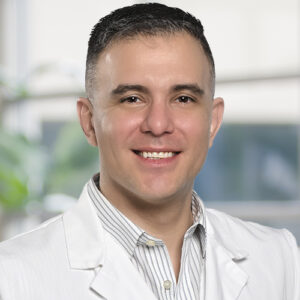Autism Spectrum Disorder (ASD): Importance of Early Diagnosis and Intervention
The Centers for Disease Control and Prevention (CDC) estimates that an average of one in 36 children in the U.S. lives with autism spectrum disorder (ASD). How would you know if your child is affected?
Dr. Federico Herrera, pediatrician at Riverside Medical Group’s Pediatric Specialist Bradley Office, shares important information about ASD, including symptoms, impact on one’s life, and strategies parents and children can implement to successfully manage the disorder.
What Is ASD?

Autism spectrum disorder is a neurodevelopmental disorder that involves deficits in communication, and social interaction, as well as repetitive and restrictive behaviors. One of the biggest initial indicators is difficulty in speaking and expressing oneself. As children age, they often withdraw from social interactions. Many children also exhibit nontraditional “play” behaviors.
“They may not adequately use the toys you provide, and children will use them in different ways. For example, pretending they’re doctors or pretending they’re in the kitchen with the different tools, they will not be able to do that as expected,” states Dr. Herrera.
ASD Progression Timeline
Dr. Herrera explains that each child’s ASD timeline is unique. He has intimate experience with this, as he has two sons with ASD. In both of his sons’ cases, symptoms started to develop after 12 months—but some children begin showing symptoms as early as six months old.
“Parents may not see them smile as much, their gaze is a bit lost, not fixating on faces, which is something really interesting for patients at that age. Or, instead of fixating on parents’ faces, they start looking towards other objects or shiny objects,” he says.
As time goes on, children tend to display repetitive and restrictive behaviors, which can be problematic when they need to be removed from performing those repetitive actions (e.g. time for dinner, bath, bed). “All kids throw tantrums, but the tantrums among patients who have autism are definitely more overwhelming for parents, and it’s very hard to bring them back to baseline,” adds Dr. Herrera.
Diagnosing ASD
The American Academy of Pediatrics (AAP) recommends developmental screenings at nine, 18, and 30 months. Riverside Healthcare utilizes the Ages and Stages Questionnaire (ASQ), which includes five different categories with questions for parents to answer. At 24 months, it’s recommended physicians use the M-CHAT tool (Modified Checklist for Autism in Toddlers). This tool was designed to assess children and make an early autism diagnosis—and then get those children set up for early intervention strategies.
“We look at the possibility of doing speech therapy, physical therapy, occupational therapy, and developmental therapy. Depending on the patient, implementing those therapies could be just one or all four. That is a program that goes all the way until the patient turns three,” notes Dr. Herrera. “At age three, the program coordinator of that particular case will work with parents to start putting the child in an appropriate school system; one that will be able to offer most of, if not all of those services.”
Helping Children with ASD Thrive
The gold standard for patients with autism is applied behavior analysis (ABA). In order to get that approved by insurance, however, families need to have an official diagnosis of autism made by a specialist. Dr. Herrera urges parents not to delay getting that diagnosis; there is no time to waste in order to ensure their child achieves the best possible outcomes.
“Autism nowadays is not what it used to be 20-plus years ago. With therapies, we know patients can advance a lot, they can have a plentiful, completely normal life,” assures Dr. Herrera. “It’s a spectrum. There are patients who are deeper in the spectrum that regretfully will not be able to achieve a fully independent life. But thankfully, the majority of them will.”
Find a Riverside Medical Group pediatrician for your family at riversidehealthcare.org/providers
